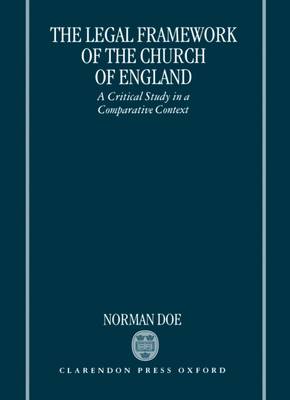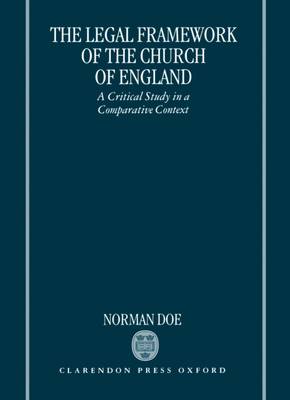
- Retrait gratuit dans votre magasin Club
- 7.000.000 titres dans notre catalogue
- Payer en toute sécurité
- Toujours un magasin près de chez vous
- Retrait gratuit dans votre magasin Club
- 7.000.000 titres dans notre catalogue
- Payer en toute sécurité
- Toujours un magasin près de chez vous
The Legal Framework of the Church of England
A Critical Study in a Comparative Context
Norman Doe
Livre relié | Anglais
426,95 €
+ 853 points
Description
This book describes in detail the ways in which the life of the Church of England is affected by law. It deals with a great many topics including canonical jurisprudence, ecclesiastical government, the ministry of clergy and laity, faith, doctrine and liturgy, the churches' rites and the management of property and finance. Each of these subjects is studied and analyzed critically and where appropriate comparisons are made with the Roman Catholic Church. Five general themes emerge: first is the degree to which the church can be said to be regulated; the second concerns the increasingly important use of administrative rules created executively at national and diocesian level to supplement the churches formal law; the third examines the relationship between the formal law and the pastoral values of clarity, certainty and flexibility; the fourth theme is the applicability of secular law; the final theme is the comparison with the canon law of the Roman Catholic Church. Thus the book provides for the first time a comprehensive, descriptive and critical analysis of the legal framework of the Church of England and the regulatory instruments which operate within this framework.
Spécifications
Parties prenantes
- Auteur(s) :
- Editeur:
Contenu
- Nombre de pages :
- 618
- Langue:
- Anglais
Caractéristiques
- EAN:
- 9780198262206
- Date de parution :
- 12-09-96
- Format:
- Livre relié
- Format numérique:
- Genaaid
- Dimensions :
- 156 mm x 234 mm
- Poids :
- 1038 g







